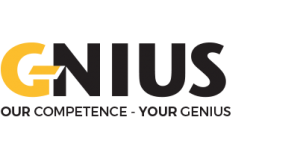What does a DevOps engineer do?
The IT world is evolving faster and faster. There are many developments, including the term DevOps and the DevOps engineer position. It is a relatively new concept that combines the processes within ‘development’ and ‘operations’. This aims to bring together both development and operations within software and to increase efficiency.
The idea behind DevOps is that the rollout of software, IT systems, and processes is done by one team that consists of professionals who are also involved in the development so that everything fits together seamlessly. In this way, adjustments can be made more quickly during projects, projects can be completed faster, and the chance of errors is smaller.
The DevOps working method is an infinite cycle. This cycle consists of:
• Continuous development.
• Continuous testing.
• Continuous integration.
• Continuous implementation.
• Continuous monitoring.
But DevOps is much more than a working method, it is also a ‘state of mind’. It’s a collaborative approach to a problem that involves more than just the IT department. The finance and marketing departments are also closely involved, and clear communication is of great importance.
What does a DevOps engineer do?
Just like the term DevOps, the position of DevOps engineer has not been around that long. A DevOps engineer is responsible for smooth and efficient collaboration between both development and operations. This starts with bringing together the right professionals and letting them develop into a team where a sense of shared responsibility and involvement is essential.
The DevOps engineer focuses on operationalizing and testing developed software and is already involved in the development process for this.
Characteristics and skills of a DevOps engineer:
• Strong communication skills.
• An outward look.
• Driven in both managing IT infrastructure and developing software.
• Continuous urge to improve.
• Work well in a team.
• Has in-depth knowledge of software development through automation tools.
• Knowledge of programming languages.
Where do DevOps engineers work?
DevOps engineers work for various companies, ranging from software companies, web agencies, and webshops to government, education, and healthcare institutions and the business community. They can also work at a secondment agency such as G-Nius that specializes in the mediation of IT professionals.
DevOps engineers who work for an IT secondment agency are often given the opportunity to develop further and more broadly at different clients. This allows them to gain more experience within various industries, with different systems, software, and hardware.
DevOps engineer vacancies
Are you a DevOps engineer looking for a new challenge? Then we at G-Nius can support you in this. We are always looking for DevOps engineers to hire them through secondment, temporary employment, or permanent employment to work on challenging projects for various clients.
Curious about what we can do for you? View our current vacancies or contact our recruiter Marcel Roestenberg.










